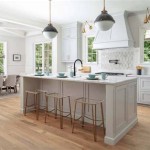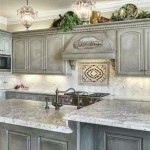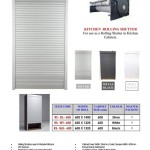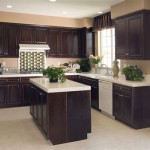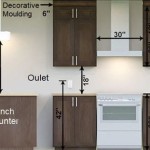Types of Kitchen Cabinet Hinges
Kitchen cabinet hinges are essential components that allow cabinet doors to swing open and closed smoothly. The type of hinge used can significantly impact the functionality, aesthetics, and overall durability of kitchen cabinetry. Choosing the right hinge is crucial for ensuring proper alignment, quiet operation, and long-lasting performance. A diverse array of hinge types exists, each designed for specific applications and offering unique advantages and disadvantages.
Understanding the various types of kitchen cabinet hinges is vital for homeowners, contractors, and cabinet makers alike. This knowledge enables informed decisions regarding hardware selection during kitchen renovation, new construction, or cabinet repair projects. Factors to consider when choosing hinges include the cabinet door style (overlay, inset, or partial overlay), the desired degree of opening, the weight and thickness of the door, and the aesthetic preferences of the homeowner. Furthermore, understanding the differences in installation techniques and adjustment mechanisms is important for achieving optimal cabinet door performance.
Overlay Hinges
Overlay hinges are designed for cabinet doors that rest on the face frame of the cabinet. The degree of overlay, representing the amount the door covers the frame, is a critical measurement when selecting this type of hinge. Common overlay measurements include full overlay, half overlay, and 3/8-inch overlay. Full overlay hinges allow the door to completely cover the cabinet frame, creating a sleek, frameless appearance. Half overlay hinges are used when two doors share a center stile, each covering half of the stile's width. 3/8-inch overlay hinges, and other partial overlay variants, are typically used in traditional cabinet designs where a portion of the face frame is visible.
Overlay hinges are available in both concealed and exposed styles. Concealed overlay hinges, also known as European-style hinges, are hidden when the cabinet door is closed, providing a clean, modern look. These hinges typically offer adjustability in multiple directions, allowing for precise door alignment. Exposed overlay hinges, on the other hand, are visible when the door is closed and often feature decorative finishes to complement the cabinet design. Traditional butt hinges and strap hinges fall into this category.
The installation of overlay hinges generally requires precise measurements and careful alignment. Concealed hinges often require specialized tools, such as a hinge boring jig, to create the recess in the cabinet door and frame. Exposed hinges, while typically easier to install, still require accurate placement to ensure proper door swing and closure. The choice between concealed and exposed overlay hinges depends largely on the desired aesthetic and the overall design of the kitchen.
Inset Hinges
Inset hinges are specifically designed for cabinet doors that are completely flush with the face frame when closed. This creates a seamless, integrated look, often associated with high-end cabinetry. Inset hinges require precise manufacturing and installation to ensure that the door sits perfectly within the frame opening, without any gaps or protrusions.
Traditional inset hinges are typically exposed and are often made of solid brass or other decorative metals. These hinges are visible when the door is closed and contribute to the overall aesthetic of the cabinet. They often feature intricate designs and finishes, adding a touch of elegance and sophistication to the kitchen. The installation of traditional inset hinges requires precise mortising of both the door and the frame, a process that demands skill and experience.
More modern inset hinges, including concealed options, are also available. These hinges offer the clean look of inset doors while providing the adjustability and ease of installation associated with concealed hinges. Concealed inset hinges are hidden when the door is closed, creating a minimalist aesthetic. However, these hinges still require precise alignment to ensure that the door sits flush with the frame.
The selection of inset hinges often depends on the desired aesthetic and the level of craftsmanship involved in the cabinet construction. Traditional inset hinges are typically used in custom-built cabinetry where attention to detail is paramount. Concealed inset hinges offer a more contemporary alternative, providing a clean look with improved functionality.
Specialty Hinges
Beyond overlay and inset hinges, a variety of specialty hinges are available to address specific cabinet door configurations and design requirements. These hinges include self-closing hinges, soft-close hinges, pivot hinges, and bi-fold hinges, among others. Each type offers unique features and benefits, catering to diverse needs and preferences.
Self-closing hinges are designed to automatically pull the cabinet door closed when it is within a certain distance of the frame. This feature prevents doors from being left ajar and helps to maintain a neat and organized appearance. Self-closing hinges are available in both concealed and exposed styles and are often used in kitchens with high traffic or where convenience is a priority.
Soft-close hinges, also known as slow-motion hinges, provide a controlled closing action that prevents the door from slamming shut. This feature reduces noise and prevents damage to the cabinet frame and door. Soft-close hinges are increasingly popular in modern kitchens, as they offer a luxurious and functional upgrade. They typically incorporate a hydraulic mechanism that dampens the closing motion, ensuring a smooth and silent closure.
Pivot hinges allow cabinet doors to rotate around a single point, rather than swinging on a traditional hinge. These hinges are often used for specialty applications, such as corner cabinets or doors that need to swing a full 180 degrees. Pivot hinges can be concealed or exposed and are available in various sizes and weight capacities.
Bi-fold hinges are designed for cabinet doors that fold in half when opened. This type of hinge is commonly used for pantry doors or other large cabinet openings where space is limited. Bi-fold hinges allow the door to be tucked neatly to the side when open, maximizing access to the cabinet interior. These hinges typically require precise alignment and installation to ensure smooth and reliable operation.
Other specialty hinges include blind corner hinges, which allow access to cabinets located in blind corners, and lift-up hinges, which are used for cabinet doors that lift upwards rather than swinging outwards. The selection of specialty hinges depends on the specific design and functional requirements of the kitchen cabinetry.
The construction material of kitchen cabinet hinges also plays a significant role in their durability and performance. Hinges are commonly made of steel, stainless steel, brass, or zinc. Steel hinges are generally the most affordable option, but they may be susceptible to corrosion if not properly coated. Stainless steel hinges offer excellent corrosion resistance and are ideal for kitchens located in humid environments. Brass hinges are known for their durability and aesthetic appeal, but they can be more expensive than steel or stainless steel hinges. Zinc hinges are a lightweight and affordable option, but they may not be as durable as other materials.
The finish of kitchen cabinet hinges is another important consideration, as it affects both the appearance and the longevity of the hardware. Common hinge finishes include polished chrome, brushed nickel, oil-rubbed bronze, and black. Polished chrome offers a bright, reflective finish that is easy to clean. Brushed nickel provides a softer, more muted finish that complements a variety of cabinet styles. Oil-rubbed bronze offers a warm, traditional look that is often used in rustic or vintage kitchens. Black hinges provide a modern, industrial look that is increasingly popular. The choice of hinge finish should coordinate with the other hardware and fixtures in the kitchen to create a cohesive and visually appealing design.
Maintaining kitchen cabinet hinges is essential for ensuring their long-term performance. Hinges should be periodically inspected for signs of wear and tear, such as loose screws, squeaking, or misalignment. Loose screws should be tightened or replaced as needed. Squeaking hinges can be lubricated with a silicone-based lubricant or a specialized hinge lubricant. Misaligned hinges can be adjusted using the adjustment screws, if available, or by shimming the hinge plate. Regular cleaning of the hinges can also help to prevent corrosion and maintain their aesthetic appeal. A mild soap and water solution is typically sufficient for cleaning most types of hinges. Abrasive cleaners should be avoided, as they can damage the finish.
The installation of kitchen cabinet hinges is a critical step in ensuring the proper function and appearance of the cabinetry. Proper installation requires precise measurements, accurate drilling, and careful alignment. When installing concealed hinges, it is essential to use a hinge boring jig to create the recess in the cabinet door and frame. The jig ensures that the holes are drilled to the correct depth and diameter, preventing damage to the wood. When installing exposed hinges, it is important to use a level to ensure that the hinges are aligned vertically and horizontally. Misaligned hinges can cause the door to bind or rub against the frame, resulting in premature wear and tear.
Ultimately, selecting the appropriate kitchen cabinet hinges involves carefully considering the cabinet door style, the desired aesthetic, the functional requirements, and the budget. A thorough understanding of the different types of hinges available, their features, and their installation requirements is essential for making an informed decision. Consulting with a professional cabinet maker or hardware specialist can also be helpful, especially for complex or custom cabinet designs.

21 Types Of Cabinet Hinges Explained

Glimpse Through The Various Types Of Hinges For Cabinets Mccoy Mart

Types Of Cabinet Hinges The Home Depot

Cabinet Hinges Made Easy Cabinetmaker S Choice

Types Of Cabinet Hinges The Home Depot

Diffe Types Of Hinges Door Window Kitchen Cabinet

Types Of Cabinet Hinges Explained With Pictures Homenish Cabinets Diy

Learn Woodworking Tips With Rockler

Types Of Cabinet Hinges Their Features Finishes Handles And More

17 Types Of Cabinet Hinges To Suit Your Style Decor Worst Room
Related Posts

